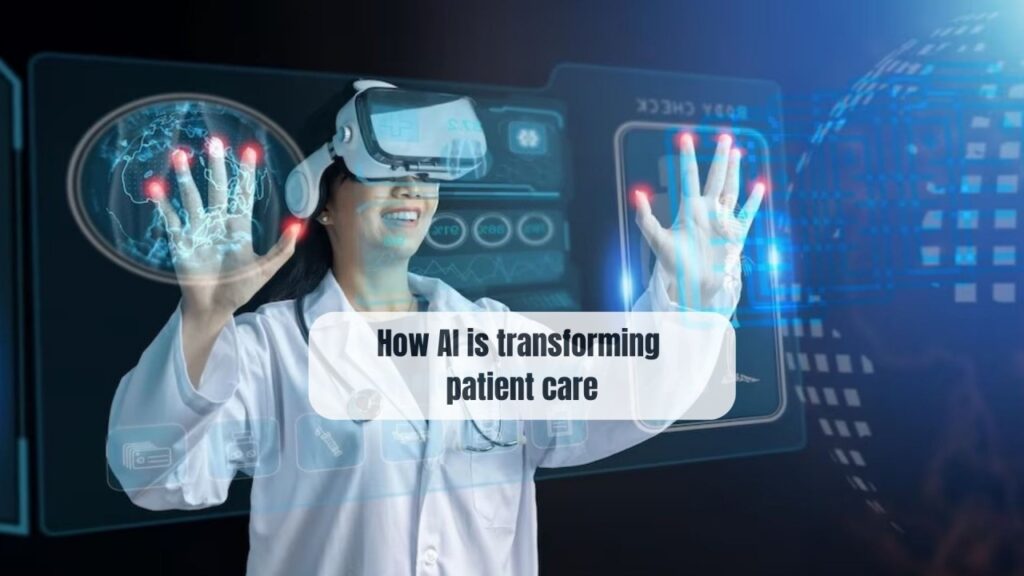Inteligjenca Artificiale (AI) është shndërruar me shpejtësi në një nga teknologjitë më transformuese të shekullit XXI. Ndërsa AI ka pasur ndikim të madh në industri si financa, tregtia dhe argëtimi, potenciali i saj i vërtetë po bëhet gjithnjë e më i dukshëm në fushën e shëndetësisë. Nga përmirësimi i diagnostikimit, te thjeshtimi i proceseve administrative dhe zbulimi i trajtimeve të reja, AI është gati të revolucionarizojë peizazhin mjekësor.
AI në Diagnostikim: Diagnoza më të shpejta dhe më të sakta
Një nga aplikimet më të rëndësishme të AI në shëndetësi është rritja e saktësisë diagnostikuese. Algoritmet e bazuara në AI mund të analizojnë imazhe mjekësore (si rreze X, MRI dhe CT-scan) më shpejt dhe shpeshherë më saktë se mjekët njerëzorë.
Google Health dhe IBM Watson Health kanë bërë hapa të mëdhenj në zhvillimin e modeleve AI që identifikojnë sëmundje si kanceri, sëmundjet e zemrës dhe tumoret e trurit me saktësi të lartë. Për shembull, sistemet AI tashmë mund të zbulojnë kancerin e gjirit në mamografi me saktësi të krahasueshme ose edhe më të mirë se radiologët me përvojë. Kjo ndihmon në diagnoza më të hershme dhe më të sakta, duke shpëtuar potencialisht jetë.
AI po ndihmon gjithashtu në diagnostikimin e sëmundjeve të rralla, duke analizuar të dhënat e pacientëve dhe duke identifikuar modele që mund t’u shpëtojnë mjekëve. Me përdorimin në rritje të AI, e ardhmja e zbulimit të hershëm dhe mjekësisë së personalizuar duket më premtuese se kurrë.
Zbulimi i Barnave me AI: Përshpejtimi i Procesit
Procesi tradicional i zbulimit të barnave është i gjatë, i kushtueshëm dhe shpesh joefikas—mund të zgjasë mbi një dekadë. AI po e përshpejton këtë proces duke parashikuar se si do të sillen përbërje të ndryshme në trup dhe duke identifikuar kandidatë premtues më shpejt se metodat klasike.
DeepMind (në pronësi të Google) bëri bujë duke përdorur AI për të parashikuar strukturat 3D të proteinave. Ky zbulim mund të shpejtojë ndjeshëm zhvillimin e barnave, veçanërisht për sëmundje komplekse si Alzheimeri dhe kanceri. Falë aftësisë së AI për të analizuar sasi masive të dhënash dhe për të parashikuar sjelljen molekulare, studiuesit fokusohen te kandidatët më premtues, duke reduktuar testimet provë-gabim.
Startup-e si Insilico Medicine dhe Atomwise po përdorin AI për të analizuar të dhëna biologjike dhe për të krijuar molekula barnash, duke e bërë procesin më efikas dhe më ekonomik. Disa prej këtyre barnave kanë hyrë tashmë në prova klinike, duke sjellë shpresë për trajtime më të shpejta në të ardhmen.
AI në Kirurgji: Precizion Robotik dhe Procedura Minimalisht Invazive
Ndikimi i AI në kirurgji është veçanërisht i rëndësishëm në kirurgjinë robotike. Sistemet robotike të fuqizuara nga AI u lejojnë kirurgëve të kryejnë procedura komplekse me saktësi më të madhe, ndërhyrje minimale dhe kohë rikuperimi më të shpejtë.
Një nga kompanitë lider është Intuitive Surgical, me sistemin da Vinci, i cili u mundëson mjekëve të operojnë përmes prerjeve shumë të vogla me kontroll dhe precizion të lartë. AI integrohet për të optimizuar procesin kirurgjikal, për të monitoruar shenjat jetësore dhe për të ofruar feedback në kohë reale, duke rritur suksesin e ndërhyrjeve.
Në të ardhmen, AI mund të trajnojë sisteme robotike për të kryer operacione pjesërisht autonome. Edhe pse kirurgjitë plotësisht autonome nuk janë ende realitet, përfshirja e AI po redukton gabimet njerëzore dhe po përmirëson rezultatet për pacientët.
AI në Administratën Shëndetësore: Thjeshtimi i Operacioneve
Përveç kujdesit ndaj pacientit, AI ka ndikim të madh edhe në anën administrative të shëndetësisë. Ajo thjeshton procese si planifikimi i takimeve, faturimi dhe menaxhimi i sigurimeve, duke liruar kohë për stafin mjekësor.
Algoritmet e Përpunimit të Gjuhës Natyrore (NLP) analizojnë kartelat mjekësore dhe nxjerrin informacion të dobishëm, duke automatizuar detyra rutinë. Chatbot-ët dhe asistentët virtualë të fuqizuar nga AI mund të përgjigjen pyetjeve të pacientëve, të caktojnë takime dhe të japin këshilla bazë shëndetësore, duke ulur ngarkesën administrative.
AI po përmirëson gjithashtu saktësinë dhe shpejtësinë e faturimit dhe kodimit mjekësor—procese të njohura për kompleksitetin e tyre—duke ulur kostot dhe përmirësuar shërbimin ndaj pacientëve.
Çështje Etike dhe Sfidat e AI në Shëndetësi
Përdorimi i AI sjell edhe sfida etike dhe të privatësisë. Është thelbësore që sistemet AI të marrin vendime të drejta dhe të mos përforcojnë paragjykime ekzistuese.
Privatësia e të dhënave është një tjetër shqetësim madhor. AI kërkon sasi të mëdha të dhënash, shpesh shumë sensitive. Kuadrot rregullatore si HIPAA në SHBA dhe GDPR në Evropë janë thelbësore për mbrojtjen e të dhënave të pacientëve.
Gjithashtu, AI nuk mund të zëvendësojë gjykimin dhe empatinë njerëzore. Ruajtja e ekuilibrit mes teknologjisë dhe kujdesit njerëzor është kyçe për suksesin afatgjatë të AI në shëndetësi.
E Ardhmja e AI në Shëndetësi
E ardhmja duket jashtëzakonisht premtuese. Trajtimet e personalizuara të drejtuara nga AI—ku analizohen të dhënat gjenetike dhe historia mjekësore për të rekomanduar terapinë më të mirë—mund të bëhen standard. AI mund të parashikojë shpërthime sëmundjesh, të identifikojë rreziqe të reja shëndetësore dhe të ndihmojë në shëndetin mendor duke analizuar të folurën dhe sjelljen për të diagnostikuar gjendje si depresioni apo ankthi.
Me rregullat e duhura, AI ka potencialin të rrisë cilësinë e shërbimit shëndetësor, të ulë kostot dhe të shpëtojë miliona jetë.
Potenciali Transformues i AI në Shëndetësi
AI nuk është më një teknologji e së ardhmes—ajo po riformëson tashmë shëndetësinë. Nga diagnoza më të sakta dhe zhvillimi më i shpejtë i barnave, te kirurgjitë robotike dhe administrata e automatizuar, AI po përmirëson kujdesin ndaj pacientëve dhe efikasitetin operacional. Edhe pse sfidat mbeten, veçanërisht në etikë, privatësi dhe paragjykime, përfitimet potenciale janë të jashtëzakonshme. Integrimi i AI në mjekësi pritet të revolucionarizojë industrinë dhe të përmirësojë jetën e njerëzve në mbarë botën.




